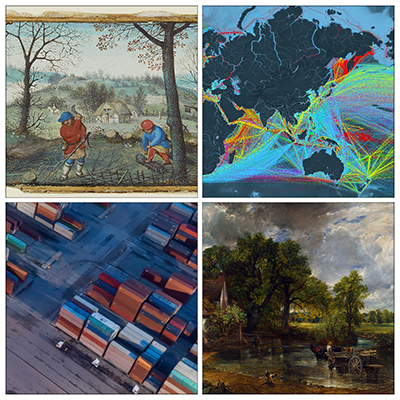
Our stuff, which we need, is made by capitalists. Our stuff is commodities. In our homes, we are surrounded by possessions. Outside the house, particularly in urban environments, we are surrounded by objects. All of these objects, whether they’re ours or not, form our material culture1. And our material culture, the products of human creation, is almost entirely manufactured capitalist structures and incentives.
We intensely understand this. We can intuit how the processes that have brought an item into our immediate vicinity were driven and altered by profit motives. The logic of why a producer would produce a profitable product is completely obvious to us, and the inverse mostly unthinkable. These logics are inextricably mineralised into the object’s bodies, when we look at them or touch them we can feel the crust it forms.
As well as this imminent tangibility, there is also a deep abstraction in our understanding of capitalist material culture. Complex and globalised supply chains have, especially for those in the West, further veiled the origins of any one product. We know our things come from somewhere, most likely China, but where and how exactly is an intractable mish mash of actions and interactions, whose elucidation reveals little to us anyway. We are comfortable leaving this gap unbroached.
Most crucially perhaps, we need these things. Our lives are sustained and benefitted by these commodities. For many examples, we cannot imagine going without them.
This combination - the materialised yet abstracted understanding of capitalisms effect on the objects around us, and their necessity to us - evokes capitalist production as indomitable. It structures our material surroundings so totally that imagining material surroundings built on other economics principles has become impossible. The material world and the structures it results from is far more imminent to us than any idea we might have of an alternate societal form.